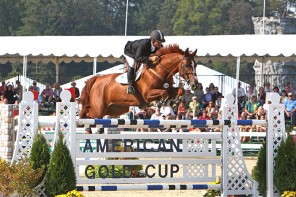Who would ever believe that a 19th century, English upper-class, after-dinner parlor game called Wiff-Waff would evolve into the unique Ping-Pong diplomacy that lifted the Bamboo Curtain long separating the United States and Communist China?
The U.S. had withheld diplomatic recognition of China ever since October 1949, when Mao Zedong’s Communists forces defeated Chiang Kai-shek’s Nationalists and established The People’s Republic of China. American citizens were forbidden, by both China and the U.S., to enter Communist China. Then 23 years later, on April 6, 1971, the American Ping-Pong team, in Japan for the 31st World Table Tennis Championship, received a surprise invitation from the Chinese team to an all-expense paid visit to China. The Americans were astounded. Although their governments refused to communicate, the American and Chinese people were eager to break the stalemate and become friends. Time magazine called it “The ping heard round the world.”
On April 10, 1971, with the agreement of the U.S. State Department, nine players, four officials and two spouses walked across the narrow wooden bridge in Lowu that extended from the British Crown Colony of Hong Kong’s New Territories to mainland China. They were saluted on the Western side by armed British soldiers and on the Eastern side by Chinese militias holding bayonets. Thus the era of Ping-Pong diplomacy was ushered in.
Five American journalists were also invited, ending the information blockade. A fascinated American public followed the games as well as the visit on television and in newspapers. The American fans admired their table tennis athletes as they talked with Chinese students and factory workers, attended the Canton Ballet, beheld the fabled Summer Palace, walked on the legendary Great Wall of China and photographed the monumental statues guarding the Sacred Way to the ancient Ming Tombs. No one seemed disappointed that the Americans lost the exhibition matches.
The charismatic Chinese Premier, Zhou Enlai, who with Mao Zedong had survived The Long March, exploited the public relations opportunity with the adroitness of a seasoned diplomat. On April 14 he hosted a lavish banquet in honor of the players at the Great Hall of People. Toasting with a glass of potent Chinese Maotai, he told them why they were really there: “You have opened a new chapter in the relations of the American and Chinese people. I am confident that this beginning again of our friendship will certainly meet with the majority support of our two peoples.”
Zhou extended an invitation for more Americans journalists to visit China, provided they do not “all come at one time.” That same day, the U.S. announced plans to remove a 20-year embargo on trade with China. The New York Times exclaimed that Ping-Pong was “an apt metaphor for the relations between Washington and Peking.”
But in spite of China’s friendly overtures, the U.S. withheld diplomatic recognition.
This is where I came into the picture.
Shortly after the Ping-Pong players left, Zhou invited me, a longtime journalist and Sino watcher, to China, along with my father, Chester Ronning — an old friend of Zhou Enlai, whom he had first met in Peking during the warlord era in the 1920s and again in 1945 in Chongqing, China’s war-time capital, during negotiations to avoid resumption of the Chinese Civil War. After our tour of China, Zhou invited us to The Great Hall for a private dinner in The Hubei Room, named after the province where my father was born of American missionaries. The premier acknowledged that he had engineered the Ping-Pong visit and then asked Chester: “Can we trust Henry Kissinger?” Dad was not aware that Kissinger, President Richard Nixon’s secretary of state, was planning a secret mission to China to prepare Nixon’s visit. He avoided the question for personal reasons but replied, “I believe any kind of communication with United States would be greatly beneficial to both countries.”
Nixon and Kissinger kept their back-channel negotiations with China to themselves. It was not until July 15 that Nixon announced that he would make the journey. In 1972, Nixon became the first American president to visit China where he gazed upon the Great Wall and made his profound observation: “This is really a Great Wall!”
Eight years passed. Nixon resigned and Jimmy Carter was elected. Then on Jan. 1, 1979, Carter announced the world-shaking event, innocently conceived a century ago by the sedate British parlor game of Wiff-Waff. A communiqué was simultaneously issued by the leaders of the U.S. and China, agreeing to establish diplomatic relations. It stated: “Both believe that normalization of Sino-American relations is not only in the interests of the Chinese and American peoples but also contributes to the cause of peace in Asia and the world.”
So Wiff-Waff, take a bow.




